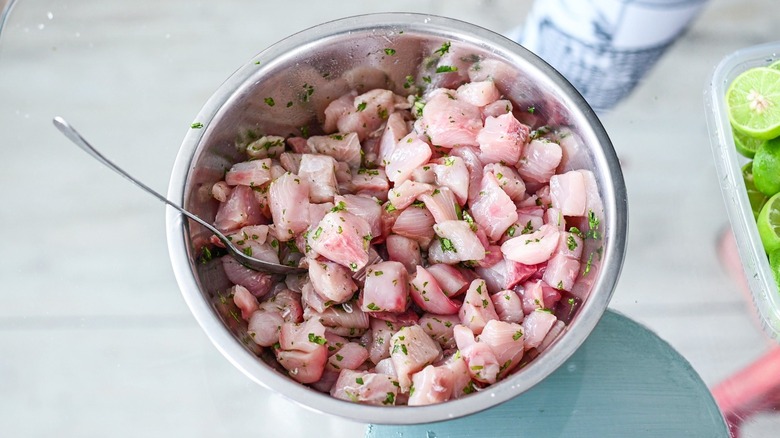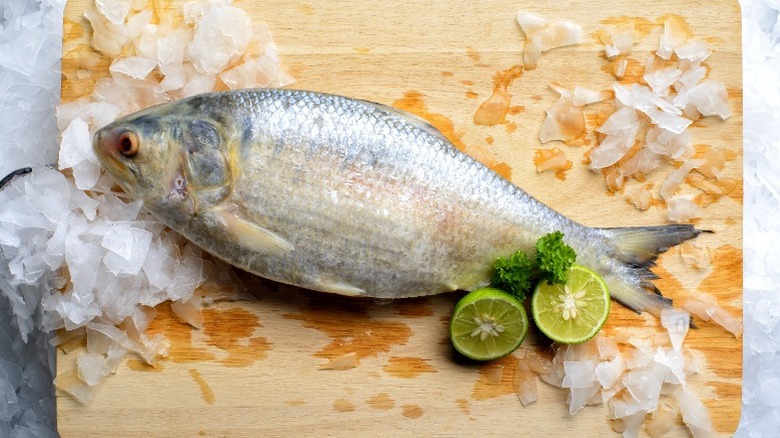The Type Of Fish You Should Avoid Buying When Making Ceviche
Ceviche is a raw fish dish similar to sashimi or poke; however, because the acidic marinade denatures the protein, it's safe to consume for most people. That doesn't mean you're immune to foodborne illness with ceviche, though. Safety protocol begins with buying the catch of choice at the grocery store — the last thing you want in your ceviche is an old fish.
One sign that a fish has gone bad is foggy eyes. You'll want to buy something with clear eyes that still seem ... lively (despite the circumstances). Another sign of bad fish is a bad stench. Fish should only have a slight ocean smell to it, not an unpleasant whiff of briny decay. Avoid anything with wear and tear visible on the gills and scales. When purchasing fish for ceviche, ask the fishmonger for the freshest saltwater catch with white meat and any specific recommendations for a ceviche. These experts are happy to help you make the safest choice.
Sea bass, fluke, flounder, mahi-mahi, grouper, and any other fish that meets the safety criteria should work for your dish. Some chefs even get fancy and prepare it with scallops. Whether it's Peruvian or Mexican-style ceviche, make sure you're getting the best quality ingredients at the market.
How to safely consume and prepare ceviche
The Environmental Protection Agency and Food and Drug Administration (FDA) indicate that fish contains beneficial nutrients, but that vulnerable groups (those who are pregnant, immunocompromised, elderly, or a young child) may be at increased risk of food poisoning from mercury levels found in seafood. The Cleveland Clinic advises that these groups avoid consuming fish raw altogether. It's important to choose saltwater fish for your ceviche, too. Freshwater fish have a higher chance of containing parasites and "forever chemicals." Even if you're not in a vulnerable status, it would still be wise to consult federal guidelines for buying saltwater fish with low mercury risks.
Use common sense in the kitchen by keeping surfaces clean and disinfected when handling raw foods. Wash hands frequently. Ask your fishmonger or consult the FDA website on appropriate storage temperatures for your ceviche as well. Stay up to date with the latest seafood recalls to ensure your catch isn't on the list. And, as always, make sure your ceviche marinates long enough (often around 30 minutes) in citrus juice. With all this information in mind, get out there and find your perfect ceviche fish.

